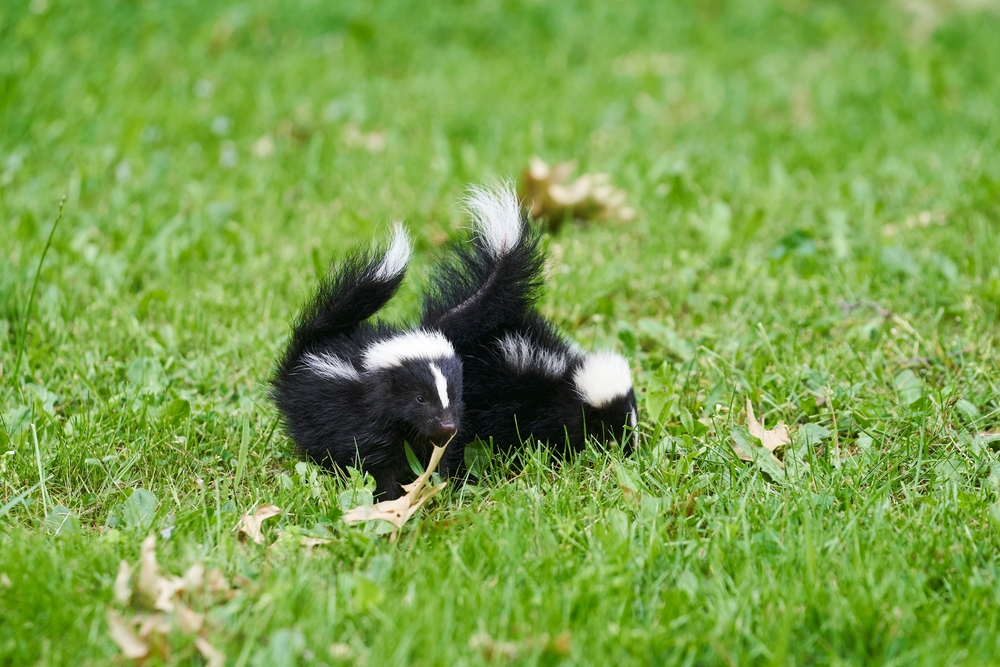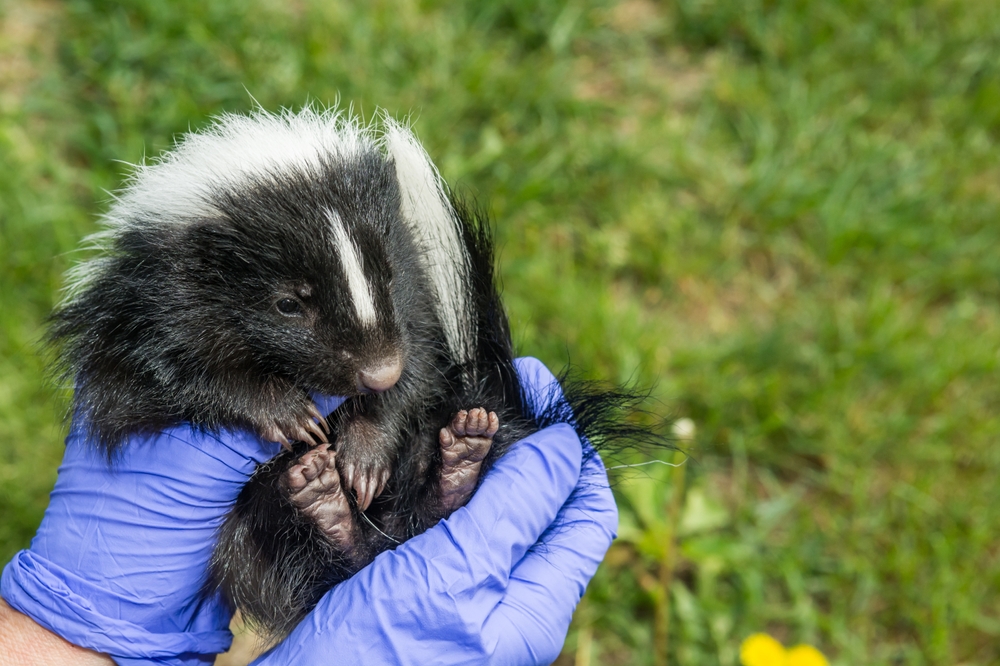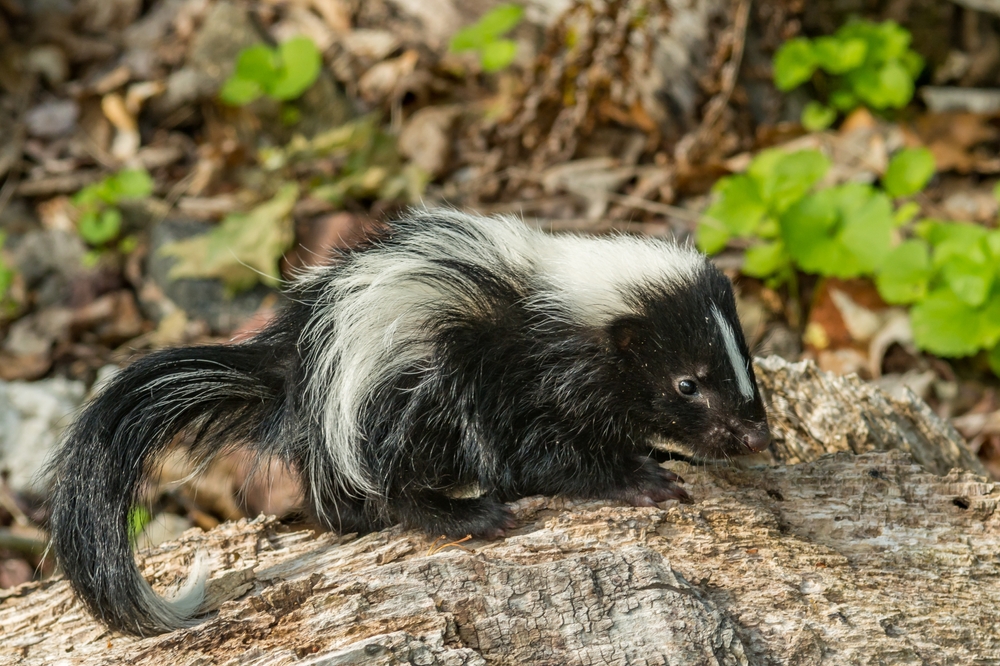Charming Skunk encounters showcase their cute side! Discover their playful behaviors, ecological role, and why these misunderstood creatures deserve love.
Charming Skunk: The Misunderstood Creatures

When you think of skunks, the first thing that probably comes to mind is their notorious smell. However, these creatures have so much more to offer. Skunks are intelligent animals that play a vital role in the ecosystem. Their reputation as stink-villains overshadows their cuteness and ecological value.
Basic Facts About Skunks

Skunks belong to the family Mephitidae and are native to the Americas. They are most easily recognized by their striking black and white coat patterns. These patterns serve as a warning to potential predators. Skunks have a small head, bushy tail, and short, stocky legs, making them easily identifiable.
There are several species of skunks, but the striped skunk is the most common in North America. Skunks are omnivorous, feeding on a diet that includes insects, small mammals, fruits, and plants. They are primarily nocturnal creatures, spending their days resting and venturing out at night to forage.
Skunk Defense Mechanism
Skunks are famous for their ability to spray a foul-smelling liquid as a defense mechanism. The substance they spray is a mixture of sulfur-containing chemicals known as thiols. This spray can reach targets up to 10 feet away and can cause irritation or temporary blindness if it gets into the eyes.
The spraying is not a skunk’s first line of defense. Before resorting to spraying, they will give several warning signs. These include hissing, stomping their feet, and raising their tail. The spray is a last resort due to the time it takes for them to replenish it once used.
The Cuteness Factor
Despite their infamous spray, skunks are undeniably cute. Their small size, combined with their unique patterns, makes them adorable to many. Watching a skunk waddle its way across a field is enough to melt anyone’s heart. Baby skunks, known as kits, are even more appealing with their tiny bodies and playful antics.
Skunks also display several affectionate behaviors, especially when raised in captivity or handled by humans. They can be surprisingly gentle creatures when they feel safe. This has led some people to keep skunks as pets, although it’s important to ensure this is legal in your area and that you’re prepared for the responsibility.
Skunks and the Ecosystem
Skunks play a crucial role in controlling insect and rodent populations. They are natural pest controllers and can help reduce the need for chemical pesticides. By digging for grubs and larvae, skunks aerate the soil, which can improve the health of plants.
Skunks also contribute to seed dispersal. As they consume fruits, they help spread seeds in different locations. This can enhance the diversity and health of local plant life.
Myths and Misconceptions
There are many myths about skunks that contribute to their negative image. One common misconception is that skunks spray constantly. In reality, skunks are conservative with their spray and only use it when absolutely necessary. They cannot spray indefinitely and have a limited supply.
Another myth is that skunks are aggressive. Generally, skunks are curious rather than aggressive. They prefer to avoid conflict and will only act defensively if they feel threatened. Understanding their behavior can help diminish unwarranted fears.
Coexistence with Skunks
Living alongside skunks can be a peaceful experience if you know how to coexist. Skunks are not interested in confrontation. Make sure garbage bins are secured to prevent easy meals for them. Install motion-activated lights to deter skunks from foraging near your home at night.
If you encounter a skunk in the wild, remember to stay calm and give it space. Back away slowly and avoid making sudden movements. If you get sprayed, a mixture of hydrogen peroxide, baking soda, and liquid soap can neutralize the smell more effectively than traditional remedies like tomato juice.
Skunks as Pets
Skunks can make interesting pets, but they are not for everyone. It is crucial to check the legality of keeping skunks as pets in your area. If you decide to adopt a skunk, they require specialized veterinary care, a proper diet, and a safe environment.
Domestic skunks are typically de-scented at an early age, which removes their ability to spray. They still require mental stimulation and social interaction to thrive. Skunks can be trained to use a litter box, making them more manageable in a household setting.
Final Thoughts
Skunks are more than their defensive odor. They are fascinating creatures with an undeserved bad reputation. Understanding their behavior and appreciating their ecological importance can transform the way we view these cute and unique animals. Education and compassion are key to harmonious coexistence with these misunderstood mammals.
